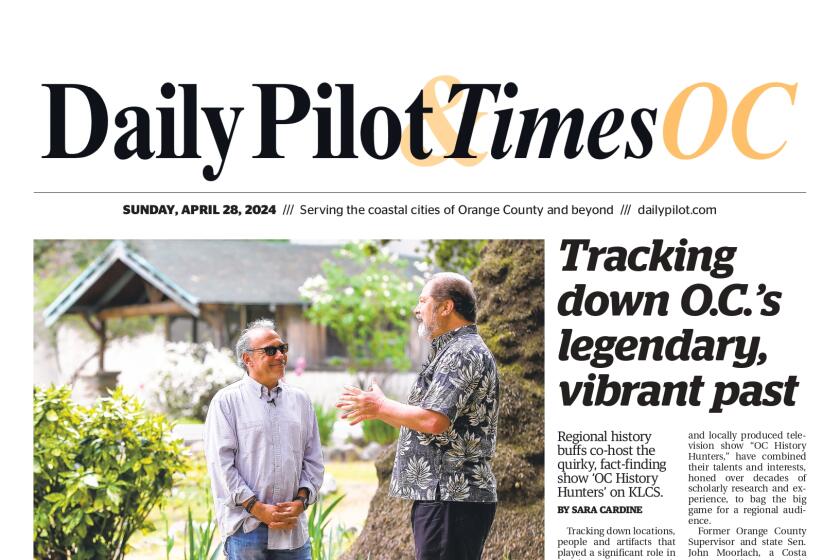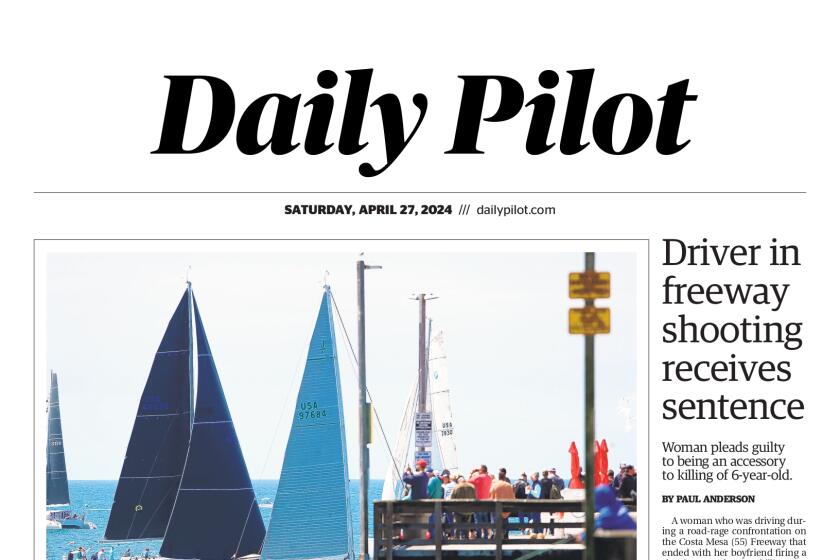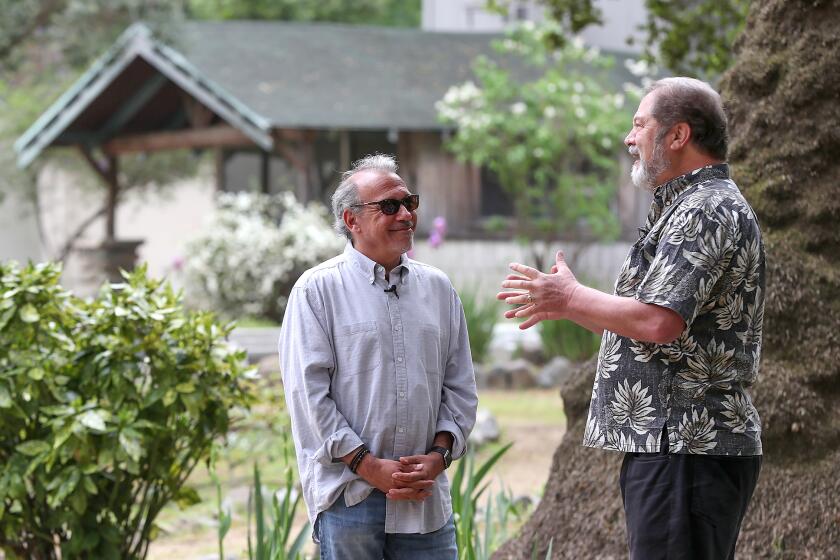4 sober-living homes are rejected by Costa Mesa Planning Commission
Costa Mesa planning commissioners rejected four sober-living home permit applications Monday, citing concerns about the locations and concentration of the facilities, as well as how many residents the homes proposed to house.
On a 4-1 vote, with Commissioner Jeffrey Harlan opposed, the commission nixed a permit request to continue operating a sober-living home at 2041 Tustin Ave.
The home, which has operated since September 2013 under the name Summit Coastal Living, was seeking approval to continue housing as many as 13 men — including a live-in manager — within three existing units on the property.
Sober-living homes typically house recovering alcoholics and drug addicts, who are considered disabled under state and federal laws.
While commissioners said they understand the need for sober-living facilities and appreciate the services and supportive environment high-quality operators can provide, they determined Summit Coastal Living isn’t a good fit for the area.
“I personally feel that this project, as proposed, is not compatible with the surrounding neighborhood,” said Chairman Stephan Andranian. “I believe that the intensity of the use is too high.”
Similar unease arose when the commission last reviewed Summit Coastal Living’s permit application in November.
At that time, the commission directed staff to prepare a resolution denying the application, but never officially took action to reject it. Aside from Andranian, the entire Planning Commission has changed since that hearing.
Commissioners on Monday also raised concerns about how the home could affect traffic and parking, echoing the worries of some neighbors who said it’s already a major problem.
Others expressed heartburn with a facility so close to Woodland Elementary School, which is around the corner.
Steven Polin, an attorney representing Summit Coastal Living, said public opposition is rooted more in fear than reality.
There are “no concrete facts” showing the home has been detrimental to the neighborhood since it opened, he said.
“This is the only household, probably, in the neighborhood that has no drugs and alcohol,” he said Monday. “These are the guys that you don’t have to worry about. These are the guys that are not stopping at the bar on the way home from work and having a couple and then driving in this neighborhood where there are young kids. These are the safe guys.”
Harlan called the sober-living debate “a particularly thorny issue for our community” and said every application that comes before the commission needs to be weighed on its own merits.
As far as Summit Coastal Living is concerned, Harlan said he wasn’t necessarily on board with his colleagues’ rationale for denial.
“This is not an easy decision for anybody up here,” he said. “I want to make sure that, at least from my perspective, we have a good basis for either approval or denial.”
All five commissioners were united in turning away applications from Casa Capri Recovery — which sought a conditional use permit to house up to 14 women in three units at 166 E. 18th St. — and Windward Way Recovery, which requested the same for up to 28 residents in eight units on adjoining parcels at 351 and 357 Victoria St.
In both cases, commissioners determined those facilities conflicted with the city’s requirement that group homes and licensed alcohol and drug treatment facilities be at least 650 feet from one another in residential areas.
Casa Capri is located less than a block from a state-licensed drug and alcohol treatment facility at 209 E. 18th St., and there are five other group homes, residential care facilities or state-licensed drug and alcohol treatment facilities within 650 feet of Windward Way, according to city staff.
Commissioner Carla Navarro Woods said the distance requirement is in place “so that sober-living facilities have enough room within and among each other so that you’re emulating a normal family neighborhood.”
”We are trying to keep a close cap because we do have an overabundance in our community, and it’s becoming a major concern for our citizens,” said Commissioner Isabell Kerins.
Polin, who also represents Casa Capri and Windward Way, questioned the legality of the buffer rule and said its widespread application will end up displacing recovering alcoholics and addicts.
“By imposing the spacing requirement, these individuals will be displaced,” he said. “Whether they’ve been recovered long enough to go home, whether the family relationships have been repaired, we don’t know, but we do know that they will be displaced and they will be without sober housing.”
The latest data indicate there are about 99 sober-living homes in Costa Mesa, along with about 77 state-licensed drug and alcohol residential care facilities, according to city staff.
Commission Vice Chairman Byron de Arakal said he thinks “on balance, this city is doing a hell of a lot to accommodate disabled people.”
“The city is doing more than any other city in Orange County to provide a fair housing environment for recovering clients,” he said. “To suggest that because now we have some regulation in place — that the law allows us to put in place — means we don’t care about people getting better anymore is just patently false and ludicrous on its face.”
Owners of the sober-living homes reviewed Monday took issue with what they see as unwarranted, false or overly vitriolic remarks that have been made about their operations and the local sober-living community in recent years — particularly as the issue has become increasingly contentious.
Jeremy Broderick, Windward Way’s chief executive and founder, said comments — especially online — about sober-living facilities and the residents who live there have been “blatantly discriminatory, stereotypical and hate-laden rhetoric.”
“Just because I’m not drinking a six pack of beer tonight to go to sleep doesn’t mean I’m a bad person or I’m different,” he told the commission.
Though its permit application was denied, Casa Capri can remain open under the terms of a state license allowing it to operate with up to six beds at the site.
All of the commission’s decisions Monday are final unless appealed to the City Council within seven days.
Twitter @LukeMMoney
All the latest on Orange County from Orange County.
Get our free TimesOC newsletter.
You may occasionally receive promotional content from the Daily Pilot.




